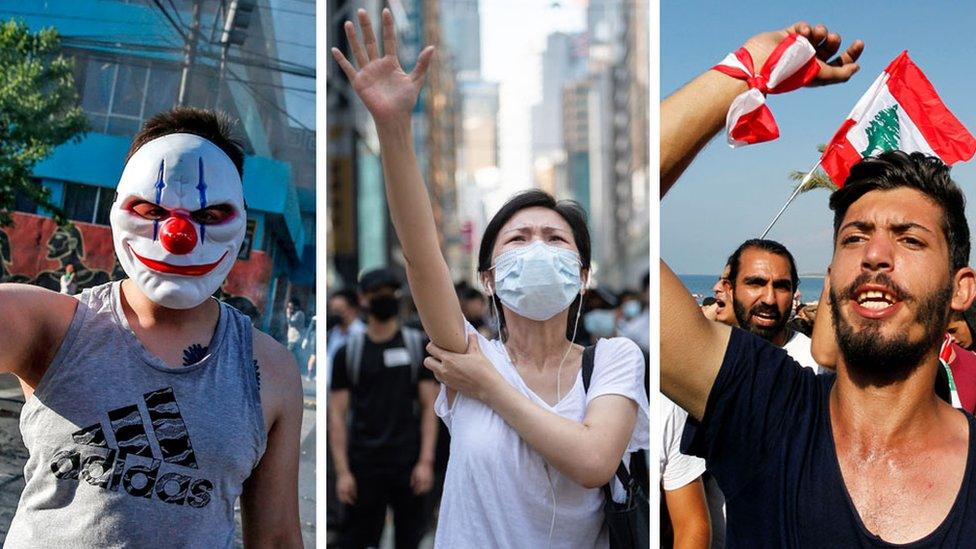Chile's Piñera moves eight ministers after protests
- Published
Violence flared on the streets of the capital Santiago
Chilean President Sebastián Piñera has announced sweeping changes to his cabinet in an effort to quell mass protests which have swept through the country for days.
Eight ministers, including interior and finance, will be replaced.
The move comes two days after Mr Piñera put the entire cabinet on notice.
Despite the measures, protesters have again clashed with security forces in Valparaiso, Concepcion and the centre of the capital, Santiago.
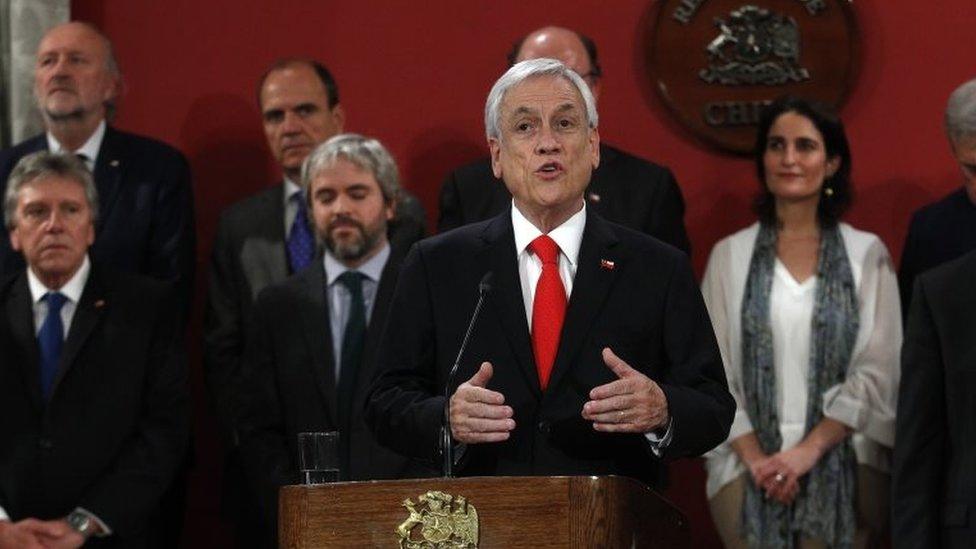
The reshuffle is the latest attempt by President Piñera to quell mass protests
Dozens of firefighters are also tackling a huge fire in a shopping centre near the presidential palace in Santiago.
At least 20 people have been killed since protests over inequality erupted more than a week ago.
President Piñera said the country had lived through "difficult days". "Chile has changed and the government also has to change to deal with these new challenges and times," the president said about the reshuffle.
He also said that "our government has listened to the clear and strong message sent by Chileans, who demand and deserve a more just and supportive country with more opportunities and less privilege".
Interior Minister Andrés Chadwick, who was severely criticised for his handling of the response to the protests, will be replaced by Gonzalo Blumel.
There have also been changes at the ministries of finance, economy, labour and sports. Santiago Governor Karla Rubilar will from now on be the new government spokeswoman.
What's the background?
Protests triggered by a now-suspended rise in the price of metro fares in Santiago widened and spread to other parts of the country over the past 10 days.
They culminated in a march in the capital on Saturday attended by at least a million people - the biggest demonstrations to be held in Chile since democracy was restored in 1990, according to organisers.
Chile's "historic" protest march from above
Protesters have expressed their discontent over a wide variety of problems, ranging from high levels of inequality and poor funding for education to the high cost of healthcare.
Many demonstrators accused established political parties of being out of touch with their needs.
Some of the protests turned violent, ending in looting and arson. A state of emergency was declared and the army deployed to the streets for the first time since 1990.
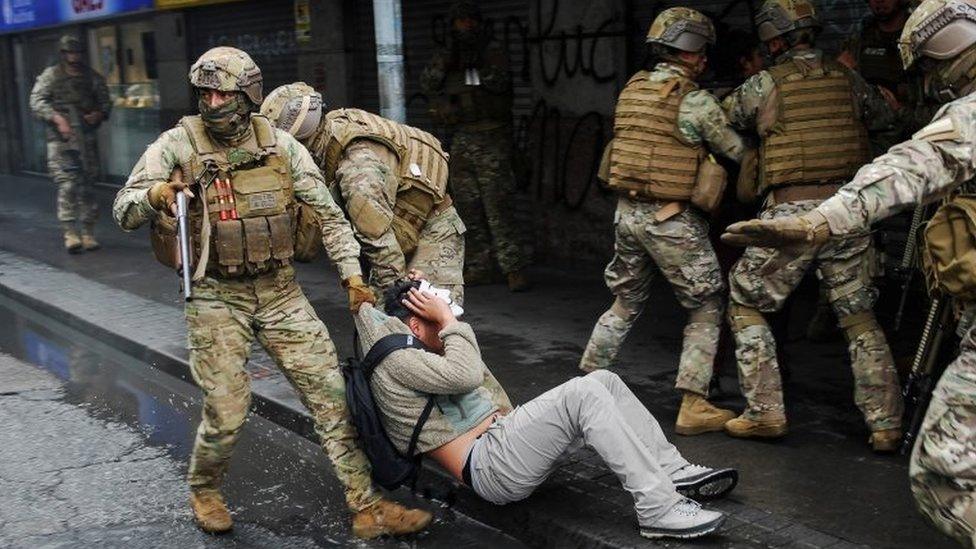
Security forces have been deployed in large numbers
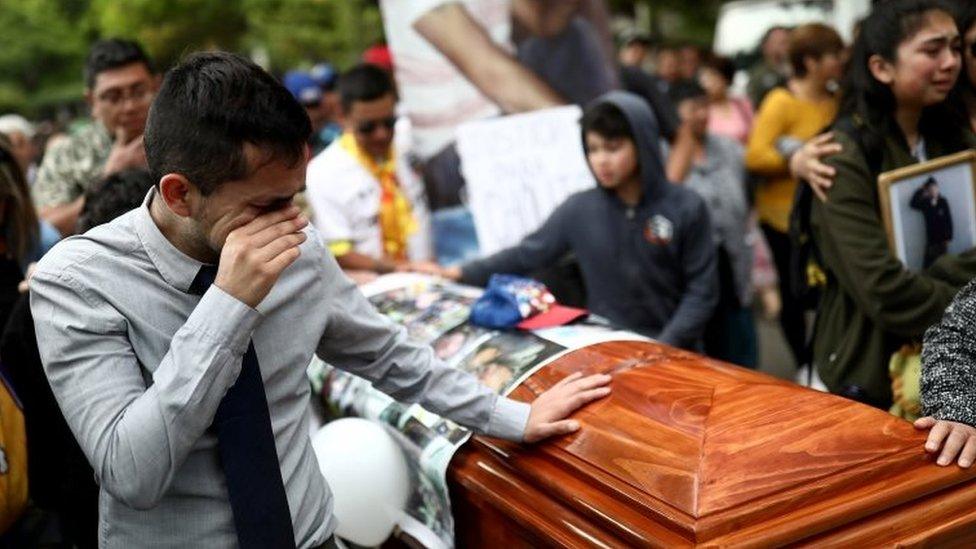
At least 20 people have died in protest-related violence
President Piñera also imposed a night-time curfew in many of Chile's major cities which was only lifted on Monday morning.
There have been widespread allegations of human rights abuses, prompting UN Commissioner for Human Rights Michelle Bachelet to send a verification mission to the country. The president said that the allegations of police and army brutality would be thoroughly investigated.
Mr Piñera's initial response to the mass protests was belligerent, labelling the demonstrators as "criminals" and saying that Chile was "at war with an implacable enemy".
He has since softened his rhetoric and the reshuffle is seen as his latest attempt to quell the protests, which have led to the arrests of 7,000 people.
- Published26 October 2019
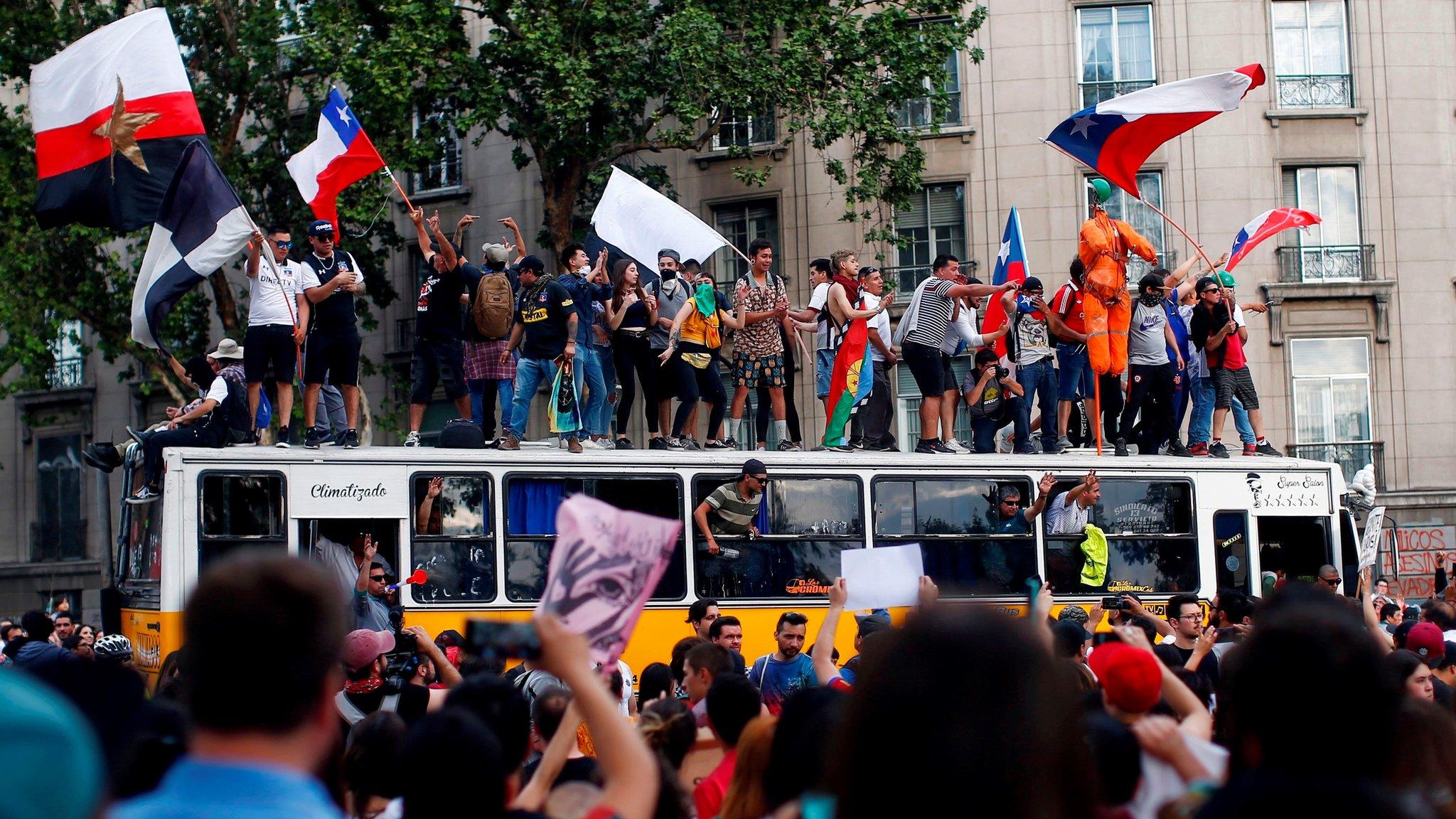
- Published23 October 2019
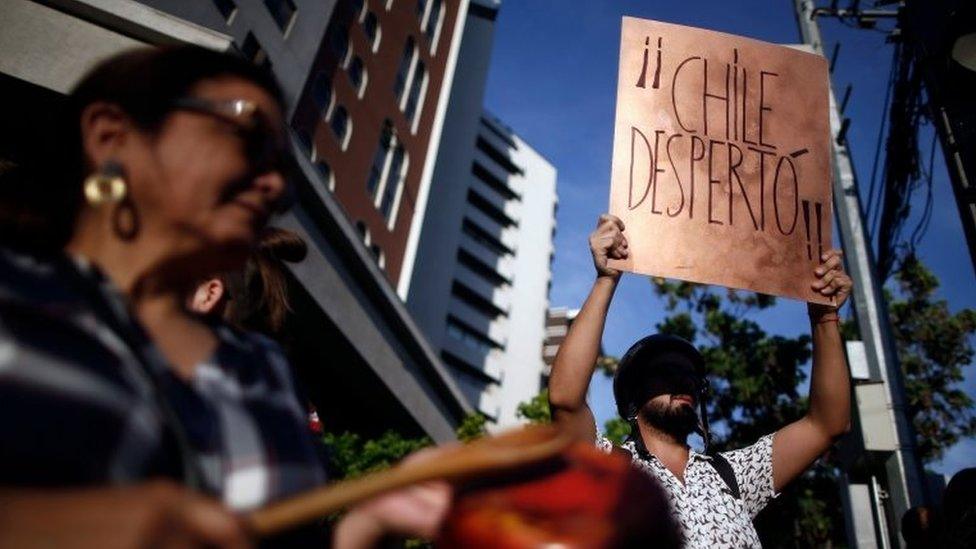
- Published21 October 2019
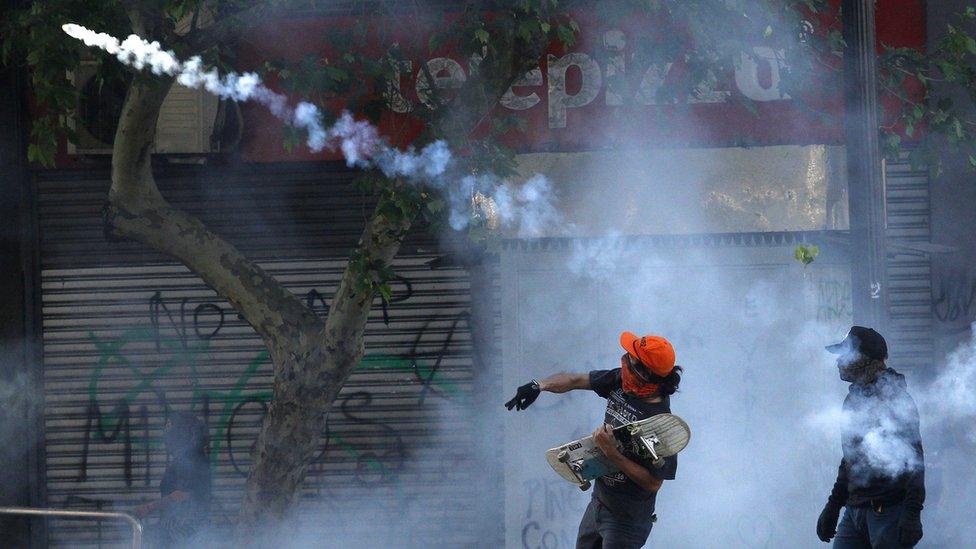
- Published11 November 2019
